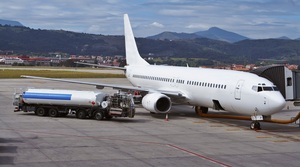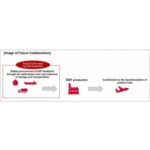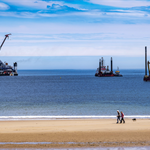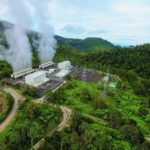UK shortlists 8 companies to receive funds under SAF competition
Energy Disrupter
ADVERTISEMENT
The U.K. Department for Transport on July 23 named eight companies that have been shortlisted to receive a share of £15 million ($20.82 million) to develop first-of-a-kind production plants in the U.K. to convert waste into sustainable aviation fuel (SAF).
The companies were selected under the U.K.’s Green Fuel, Green Skies competition, which was launched in March and aims to support the development of facilities that can convert household waste, waste wood, and excess electricity into SAF. The competition, administered by the Department for Transport, is part of the U.K.’s Ten Point Plan for a Green Industrial Revolution, which was announced in November 2020.
The competition aims to support early-stage development of SAF plants in the U.K., including front-end engineering design (FEED), pre-FEED, and feasibility studies.
Shortlisted organizations include:
Advanced Biofuel Solutions Ltd.: ABSL will work with a British refinery and British engineering company to produce a detailed engineering design for a new facility in Cheshire. The plant will use gasification and Fischer-Tropsch (FT) technology to convert 133,000 metric tons of waste a year into a biocrude that can be upgraded to aviation fuel.
alfanar Energy Ltd.: alfanar’s lighthouse green fuels (LGF) project, located in Tees Valley, will use gasification and FT technology to convert household and commercial waste into around 180 million liters of SAF and naphtha. The project is currently completing design optimization work ahead of starting FEED by the end of 2021.
Fulcrum BioEnergy Ltd.: The Fulcrum NorthPoint project, being developed at the Stanlow Manufacturing Complex in Ellesmere Port, will use proven technology and processes based on the company’s first commercial-scale facility currently being commissioned in the U.S. Once fully operational, NorthPoint will convert residual waste into around 100 million liters of SAF using gasification and FT technology. Funding will support the FEED stage of project work.
Green Fuels Research Ltd.: The firefly project is a joint endeavor between Green Fuels, Petrofac and Cranfield University that aims to demonstrate and certify a technology route to SAF from sewage sludge, a fully biogenic, U.K.-derived waste feedstock. Funding will support the project’s pre-FEED development stage.
Lanzatech UK Ltd.: Funding will support the FEED stage of a proposed Lanzatech facility, located in Port Talbot, South Wales. The facility will produce more than 100 million liters a year of SAF, using ethanol from biogenic wastes and industry flue gases, with the potential to support significant jobs in the area.
Lanzatech UK Ltd and Carbon Engineering: This feasibility study project proposes the integration of innovative technologies to produce over 100 million liters per year of SAF. Carbon dioxide (CO2) captured from the atmosphere using Carbon Engineering’s direct air capture (DAC) technology, and hydrogen from water electrolysis, will be converted into SAF using LanzaTech’s gas fermentation and LanzaJet’s alcohol-to-jet technology developed by LanzaTech and Pacific Northwest National Laboratory. Project members British Airways and Virgin Atlantic will study offtake potential and go-to-market routes for the fuel.
Nova Pangaea Technologies (UK) Ltd.: This feasibility project is a partnership between British Airways, LanzaJet and Nova Pangaea Technologies. It will study the optimal design to construct a facility that produces more than 100 million liters a year using U.K. woody residues and the integration of Nova Pangaea’s REFNOVA and LanzaJet’s alcohol-to-jet fuel technology.
Velocys Projects Ltd.: The Altalto project is being developed by Velocys and British Airways, to build a commercial waste-to-SAF plant in Immingham, Lincolnshire. Altalto will take hundreds of thousands of tonnes per year of black bag waste and convert it into SAF using gasification and FT technology. The project has received planning consent from North East Lincolnshire Council and funding will support progress towards FEED.
Additional information is available on the U.K. Department for Transport website.
















